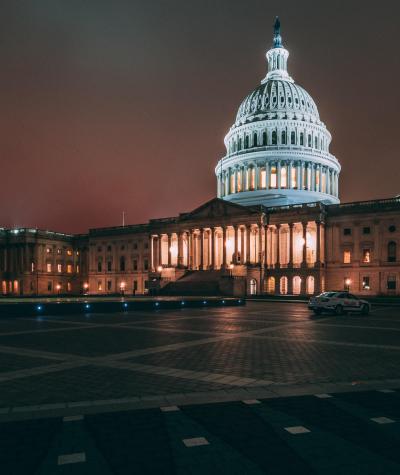The U.S. Senate Ethics Committee is responsible for guarding the integrity of the Senate and upholding the public’s right to know that their elected officials are being held accountable for unethical and unlawful behavior.
The list of misdeeds the committee is tasked with investigating includes acts such as insider trading, accepting illegal gifts, and accepting campaign contributions in exchange for official acts.
Unfortunately, the committee has proven time and time again that it is not up to this task. The Senate Ethics Committee was created in 1964 and continues to rely on the same outdated and ineffective system of self-policing — a system in which the only people enforcing ethics rules and laws are the senators themselves.
The Senate Ethics Committee’s regular failure to find wrongdoing when complaints are filed or accusations are made is not because senators never violate ethics rules and laws, but because the committee is woefully inadequate.
The committee seems either incapable or completely uninterested in pursuing any sort of enforcement, even in the most obvious instances of wrongdoing.
This is not a situation without a tangible solution; in fact, a very viable path forward exists just on the other side of Capitol Hill. Unlike the Senate, the U.S. House of Representatives recognized the failures of self-policing in 2008 and created an independent office responsible for investigating potential ethics violations by members of Congress. They named it the Office of Congressional Ethics (OCE).
CLC has conducted a review to highlight the Senate Ethics Committee’s enforcement efforts as compared to the OCE’s over the last 14 years, and this review paints a concerning picture. The Senate Ethics Committee has investigated 195 allegations of wrongdoing sent to the committee via complaints between 2009 and 2023, while the OCE investigated 249 complaints during the same period.
Of those, the Ethics Committee dismissed 56% and the OCE dismissed 53%. Given these similar rates of dismissal, one might expect the other metrics to be comparable, but that is not the case.
The Senate Ethics Committee found evidence of a violation during its investigations only 3% of the time, while the OCE found evidence of a violation 43% of the time.
This is not a simple matter of senators being 40% more ethical than members of the House, but rather a stark contrast of one outside body properly applying the facts of the complaints it reviews to the law and one self-policing body failing to do the same.
It is abundantly clear that the House has an ethics body that is drastically more effective in its ethics enforcement than the Senate:
Not only is the OCE better at upholding ethics rules and laws, but it is also significantly more transparent about its investigations. While the OCE has published a report for 45% of its investigations, the Senate Ethics Committee has only done so for 4%.
The OCE also makes the effort to regularly update the public about what it's been up to. Every quarter, the OCE publishes a report stating how many investigations it has conducted, how many complaints it dismissed, and how many complaints have resulted in a finding of evidence of a violation.
The OCE also includes on its website a link to all the reports it released that quarter. The Senate Ethics Committee, on the other hand, only releases a similar report once annually, a month after the prior year has ended.
The lack of accountability and transparency for ethics violations in the Senate decreases public trust, as it strips voters of their right to know whether their elected officials are acting ethically.
Without effective ethics enforcement, senators will continue to favor their own personal financial interests, or those of their donors and other special interests, over the needs of the public.
The Senate’s poor enforcement has created an environment similar to the one that allowed for the scandals that led to the OCE’s creation. Those events illustrate why it is time for the Senate to follow the House’s lead.
(Part 2 of this series examines this history.)

